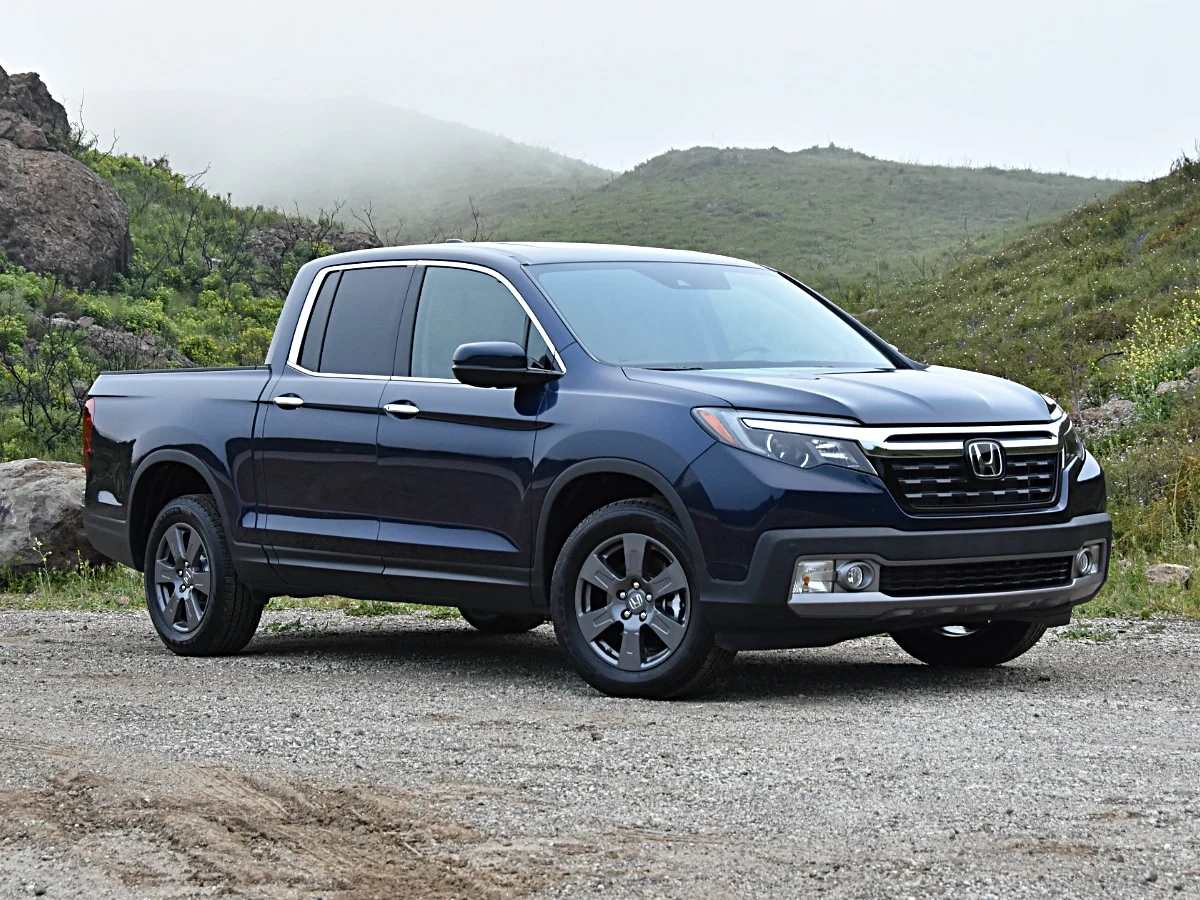When it comes to pickup trucks, one of the most important aspects of their design is their ability to handle heavy loads. Whether you’re hauling equipment, towing a trailer, or simply using the truck for heavy-duty tasks, a reliable pickup truck that can stand up to the pressure is crucial.
Unfortunately, not all pickup trucks are created equal when it comes to durability, and some are prone to breaking down or even experiencing frame damage under extreme loads. For truck owners and enthusiasts, it’s important to know which vehicles can endure such stress without compromising safety, performance, or longevity.
In this article, we’ll take a look at five pickup trucks that excel in this area, maintaining their strength and integrity even under heavy loads. These trucks have earned a reputation for their ruggedness, reinforced frames, and robust suspension systems, making them ideal for demanding tasks.
Conversely, we’ll also explore five trucks that, despite their popularity or features, tend to struggle when it comes to withstanding heavy-duty loads. These trucks are often prone to frame issues, stress fractures, or component failures when put under the same demanding conditions.
Understanding the differences between these two categories of trucks can help consumers make informed decisions based on their specific needs and the kind of work they expect to perform.
Also Read: Top Engines That Can Survive Without a Working Cooling Fan
5 Pickup Trucks That Stay Solid Under Heavy Loads
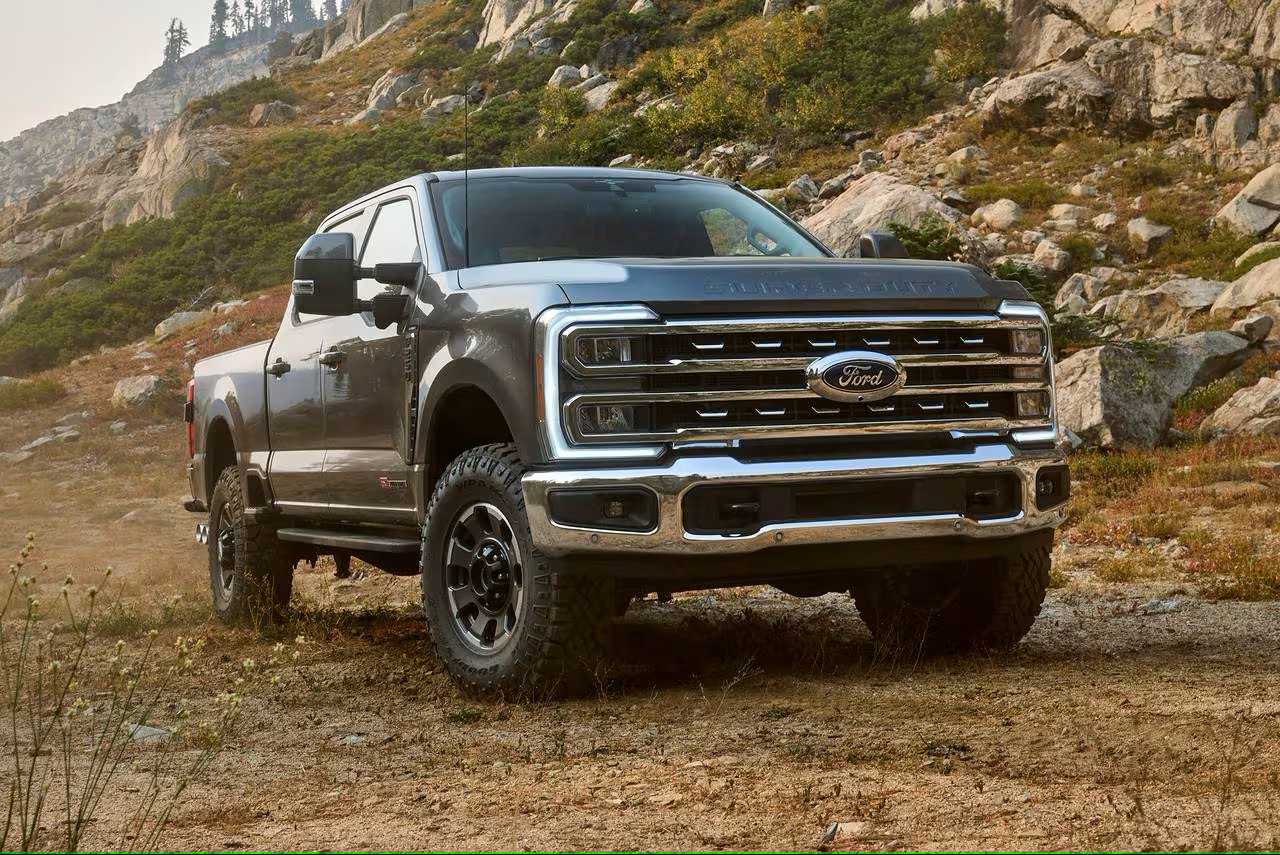
Ford Super Duty F-250/F-350
The Ford Super Duty F-250 and F-350 are among the best pickup trucks on the market when it comes to handling heavy loads. These trucks are designed to tackle the toughest challenges, with reinforced frames that can handle both towing and hauling with ease.
The F-250 and F-350 are built with high-strength steel frames and are equipped with heavy-duty suspension systems, making them ideal for hauling large loads or towing heavy trailers. The rear suspension, in particular, is designed to minimize stress and distribute weight evenly, preventing any damage to the frame or undercarriage.
With a powerful engine lineup, including options like the 6.7L Power Stroke V8 Turbo Diesel, these trucks deliver exceptional torque and towing capacity. The F-350, for example, can tow up to 37,000 pounds when properly equipped with a gooseneck hitch, and it maintains stability even under such extreme loads.
Additionally, Ford’s towing technology, such as the Pro Trailer Backup Assist and Trailer Sway Control, further ensures that these trucks can handle large trailers without compromising safety or performance.
In terms of durability, Ford’s Super Duty trucks have earned a reputation for lasting long and holding up well even under the most challenging conditions.
They are a favorite for commercial use and are trusted by contractors, ranchers, and other heavy-duty professionals who require a truck that won’t break under pressure. The F-250 and F-350 are built to endure, making them a solid choice for those who rely on their trucks for serious work.
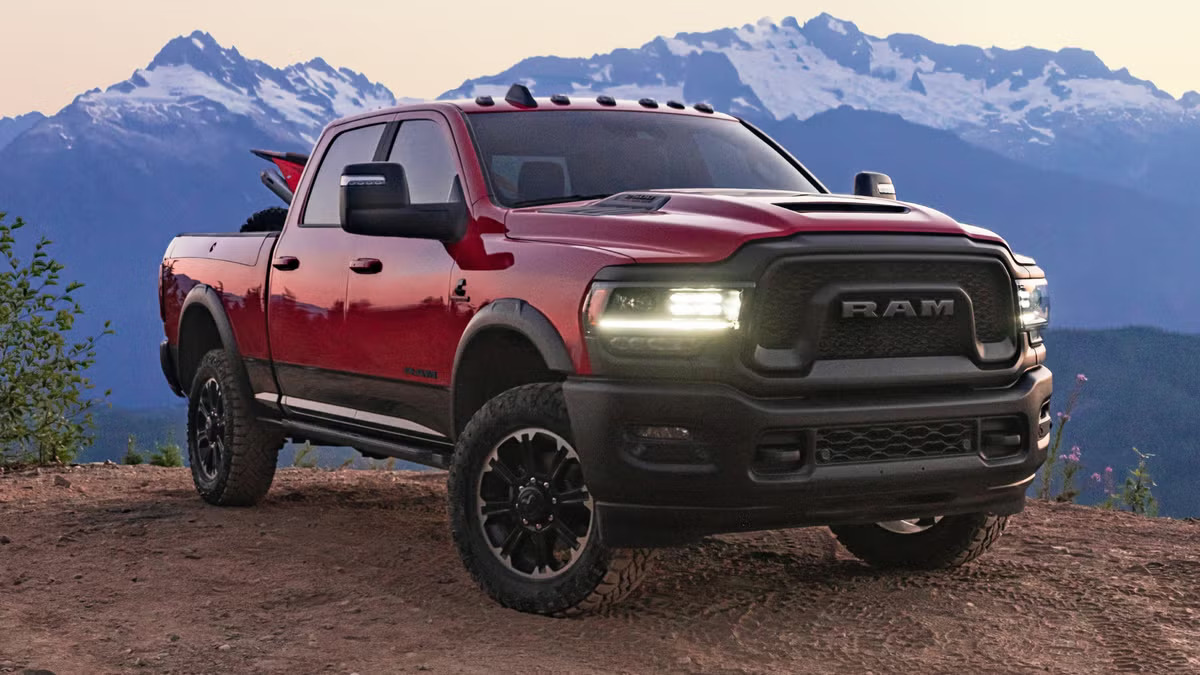
Ram 2500/3500 Heavy Duty
Ram’s 2500 and 3500 Heavy Duty models are another great choice for those in need of a durable pickup truck that can handle significant loads. These trucks are built with a high-strength steel frame and feature heavy-duty suspension systems that ensure they can tackle tough tasks without issue.
The 3500, in particular, is designed for maximum towing capacity, with an available 6.7L Cummins Turbo Diesel engine that produces over 1,000 lb-ft of torque. This allows the 3500 to tow up to 35,100 pounds when properly equipped, making it one of the best in its class for heavy-duty towing.
The Ram 2500 and 3500 trucks are also equipped with advanced suspension systems that help distribute the load evenly, which minimizes the risk of frame damage. With their air suspension options, these trucks are capable of adjusting the ride height to accommodate heavy loads, which improves ride quality and reduces the stress placed on the frame.
Additionally, the rear axle is designed to handle high weight capacities, ensuring that even the heaviest payloads won’t result in frame damage or structural stress.
Beyond just performance, the Ram Heavy Duty trucks are also known for their interior comfort and technology, which makes them a popular choice for both work and long-distance travel.
With a reputation for reliability and durability, the Ram 2500 and 3500 are among the top choices for people who need a truck that can stand up to demanding tasks without failure.
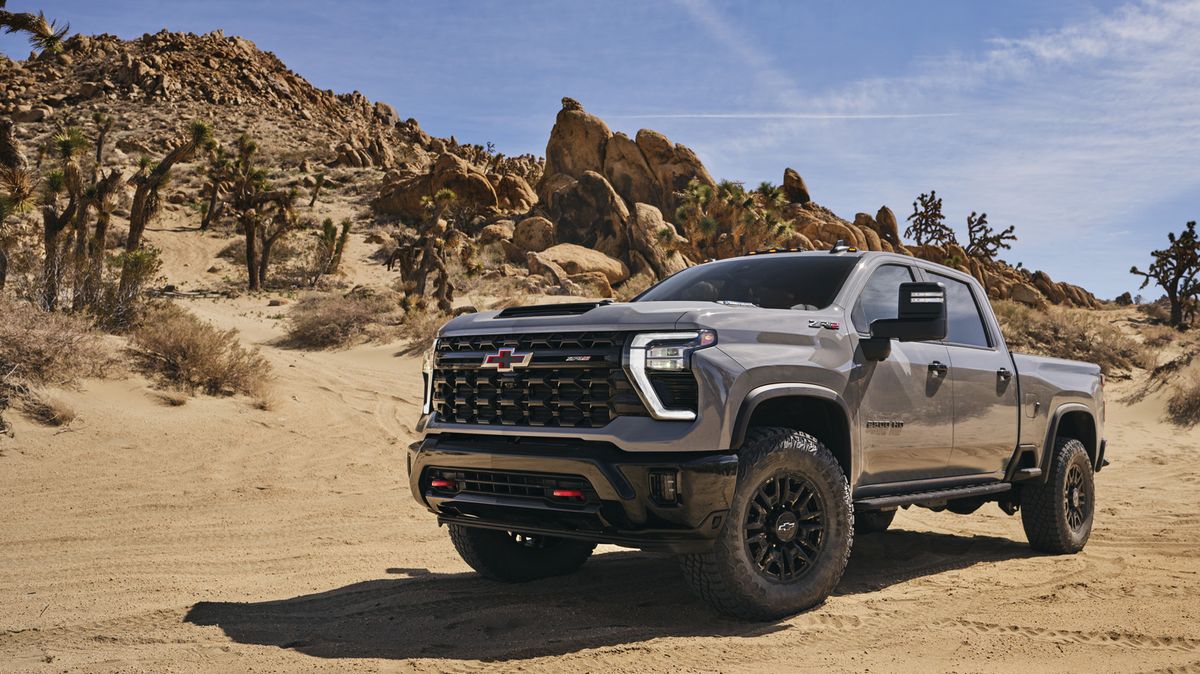
Chevrolet Silverado 2500HD/3500HD
The Chevrolet Silverado 2500HD and 3500HD are well-regarded for their towing capabilities and performance under heavy loads. Built with a durable steel frame, these trucks are designed to provide the necessary strength to handle demanding tasks such as hauling large equipment or towing heavy trailers.
The Silverado 3500HD, equipped with the available 6.6L Duramax Turbo Diesel engine, can tow up to 36,000 pounds, making it an excellent choice for those who require a high towing capacity.
The suspension system in the Silverado HD models is engineered to handle heavy payloads with minimal strain on the frame. With the addition of the Z71 off-road package, the Silverado 2500HD and 3500HD can handle rough terrain while still maintaining stability under heavy loads.
Chevrolet’s Trailering Package further enhances towing performance, offering features like an integrated brake controller and trailer sway control, which contribute to safer and more reliable towing experiences.
With a focus on durability and performance, the Silverado HD trucks are built to last. They are ideal for those in industries such as construction, agriculture, and transportation, where heavy-duty towing and payload capabilities are crucial.
The Silverado 2500HD and 3500HD continue to be among the most trusted names in the heavy-duty truck segment, offering a combination of power, reliability, and durability that stands the test of time.
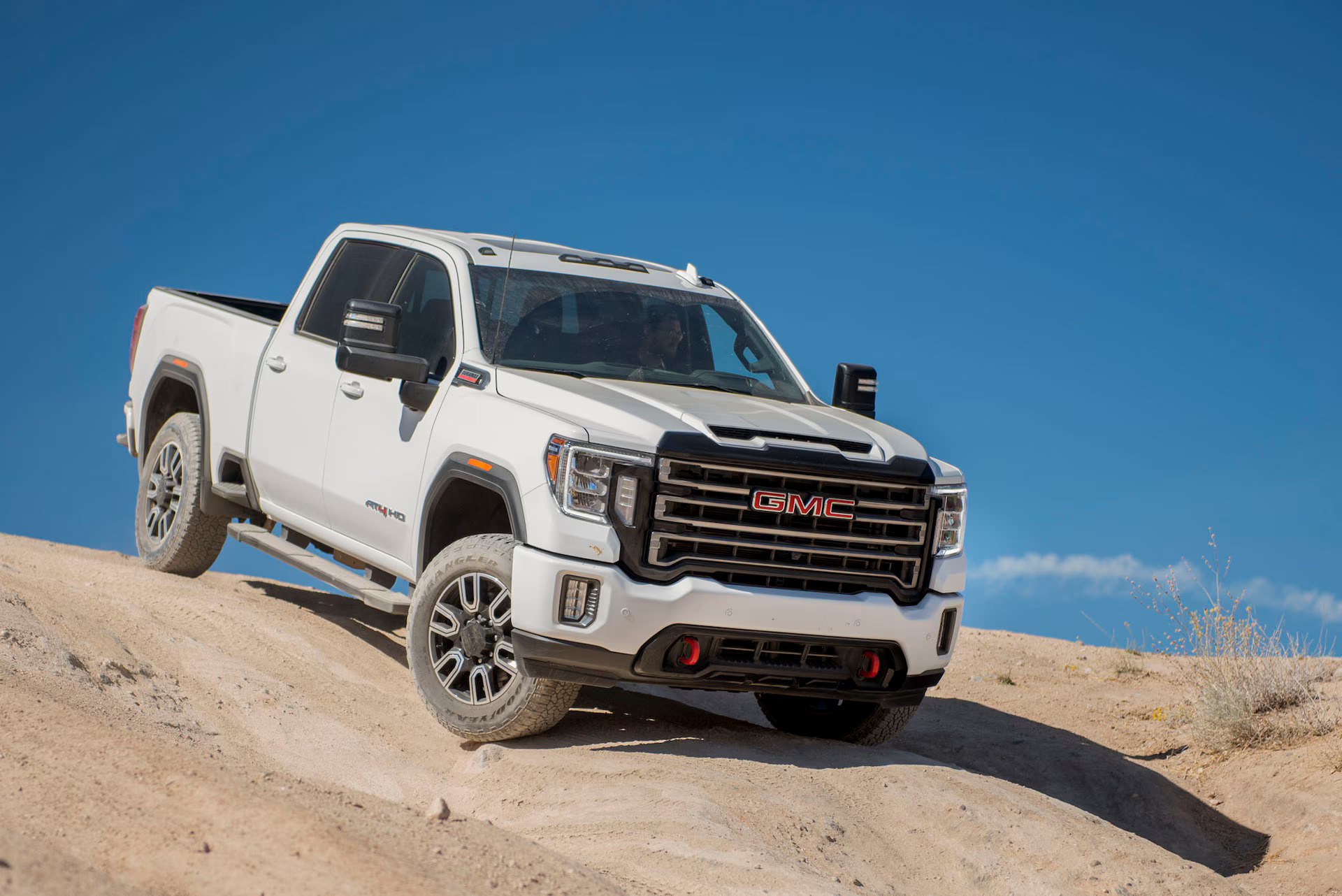
GMC Sierra 2500HD/3500HD
The GMC Sierra 2500HD and 3500HD share much of the same foundation as the Chevrolet Silverado but offer additional features and premium touches. Like the Silverado, the Sierra HD trucks come with a durable steel frame designed to withstand heavy loads.
With an available 6.6L Duramax Turbo Diesel engine, the Sierra 3500HD can tow up to 36,000 pounds, providing ample power for even the most demanding jobs. The Sierra 2500HD is similarly equipped to handle significant payloads, with a towing capacity of up to 18,500 pounds when properly configured.
GMC’s Professional Grade engineering ensures that these trucks remain solid under pressure, with reinforced suspension components that are capable of handling heavy loads without compromising the integrity of the frame.
The Sierra HD models come with a range of towing technologies, including Denali-exclusive features, such as enhanced rearview cameras and available digital displays for improved visibility when towing large trailers.
While the Sierra HD trucks are known for their luxury-oriented features, they still maintain a ruggedness that allows them to handle extreme workloads. For those who require a combination of luxury, capability, and durability, the Sierra 2500HD and 3500HD are an excellent option for getting the job done without sacrificing performance.
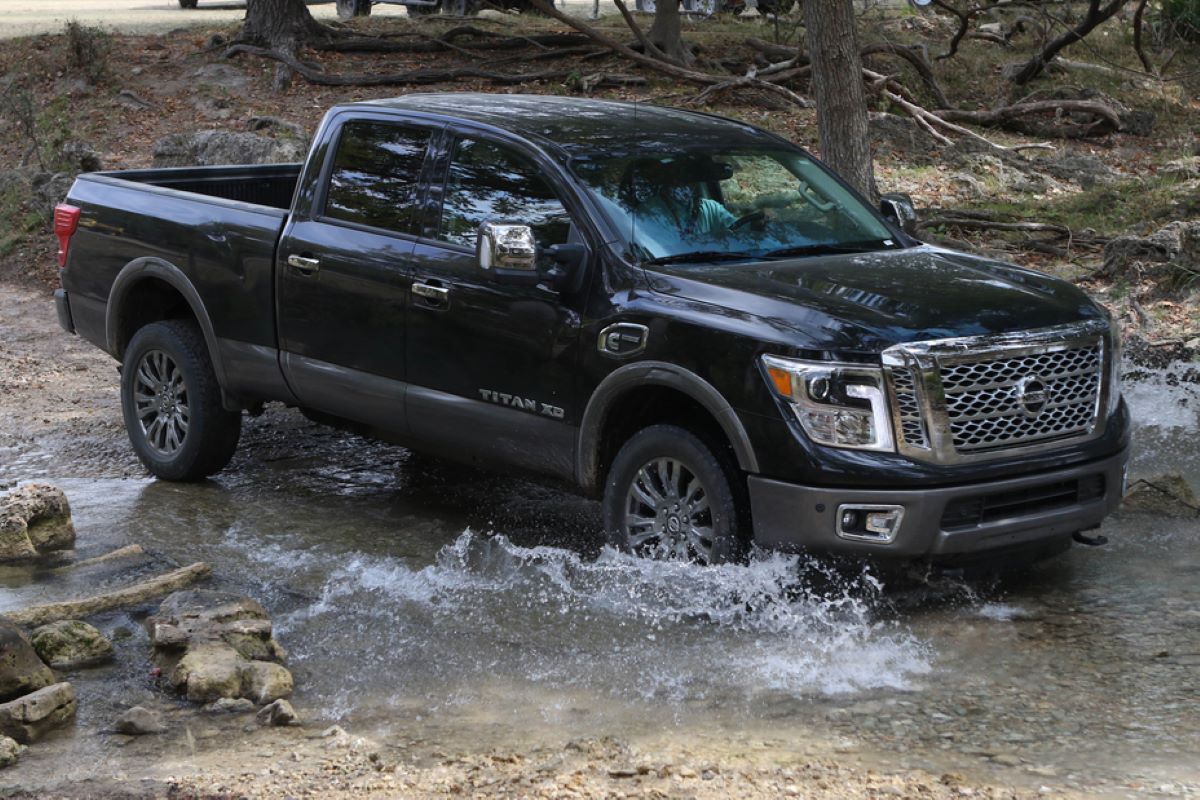
Nissan Titan XD
The Nissan Titan XD is a unique offering in the heavy-duty truck segment, positioned between traditional light-duty and full heavy-duty trucks. It features a reinforced frame designed to handle more weight than standard half-ton trucks but without the extreme towing capacities of the largest heavy-duty pickups.
The Titan XD comes equipped with a 5.6L V8 engine that provides ample horsepower and torque, offering a towing capacity of up to 12,000 pounds when properly equipped.
The Titan XD’s suspension system is built for strength, with heavy-duty components that ensure a smooth ride even under heavy loads. The truck also offers available rear air suspension, which helps stabilize the vehicle when carrying a significant payload. This added level of support is crucial for reducing the likelihood of frame damage or stress fractures during heavy use.
While the Nissan Titan XD is not as powerful as some of the other heavy-duty trucks on this list, its solid frame and robust suspension system make it an excellent choice for those who need a reliable truck for mid-range towing and hauling tasks. Its durability under load has made it a solid option for those looking for a truck that can stand up to the demands of commercial or personal use.
5 Pickup Trucks That Break Frames
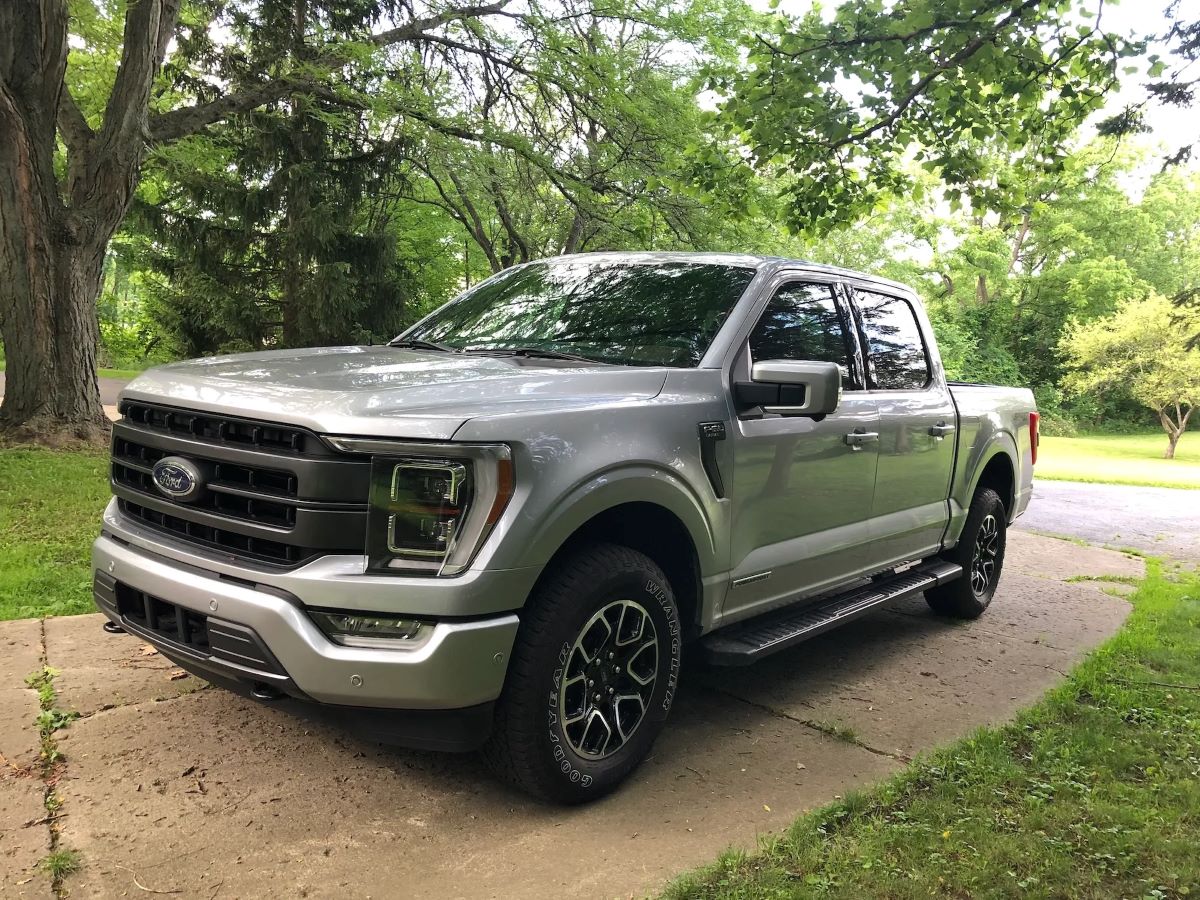
Ford F-150 (2015–2020)
Despite its longstanding reputation as one of America’s best-selling trucks, the Ford F-150 model years 2015 to 2020 faced some notable issues when it came to withstanding heavy loads.
The main problem stems from Ford’s decision to switch from a full steel body to an aluminum body, a move intended to improve fuel efficiency and reduce vehicle weight.
While this transition made the truck more fuel-efficient and lighter in some aspects, it inadvertently reduced its durability under extreme stress.
The aluminum frame, while strong, didn’t have the same robustness that traditional steel frames offered, especially when subjected to the kind of extreme loads that are common in heavy-duty applications.
Owners who pushed their F-150 trucks beyond their recommended towing or payload capacity started noticing structural issues, especially in the rear of the truck, where the frame would sometimes crack or warp under pressure. This was especially prevalent in models that regularly towed near or above the truck’s maximum capacity.
Some owners reported issues with the rear crossmember and the undercarriage, which showed signs of severe stress or outright damage after prolonged heavy use. Additionally, the rear suspension, although capable of supporting regular loads, often showed signs of strain when carrying significant weight for extended periods.
For truck owners who primarily used their vehicles for hauling or towing, this raised concerns about the long-term integrity of the truck’s frame. Despite improvements in later models, these frame issues became a cautionary tale for those in the market for a durable and heavy-duty truck.
Though Ford’s F-150 remains a solid option for many drivers, the frame issues in the 2015 to 2020 models highlighted that not all trucks are suited for the same levels of heavy-duty work.
It’s important to keep in mind that while the F-150 is excellent for light to medium-duty tasks, its frame may not always stand up to the extreme demands of those who require a truck to constantly carry heavy loads or tow massive trailers.
For those who plan on using their F-150 primarily for lighter work or personal use, this truck remains a great option.
However, for individuals involved in industries that require the truck to handle substantial, consistent weight, alternative models with reinforced steel frames, such as the Ford Super Duty F-250 and F-350, would be a better fit.
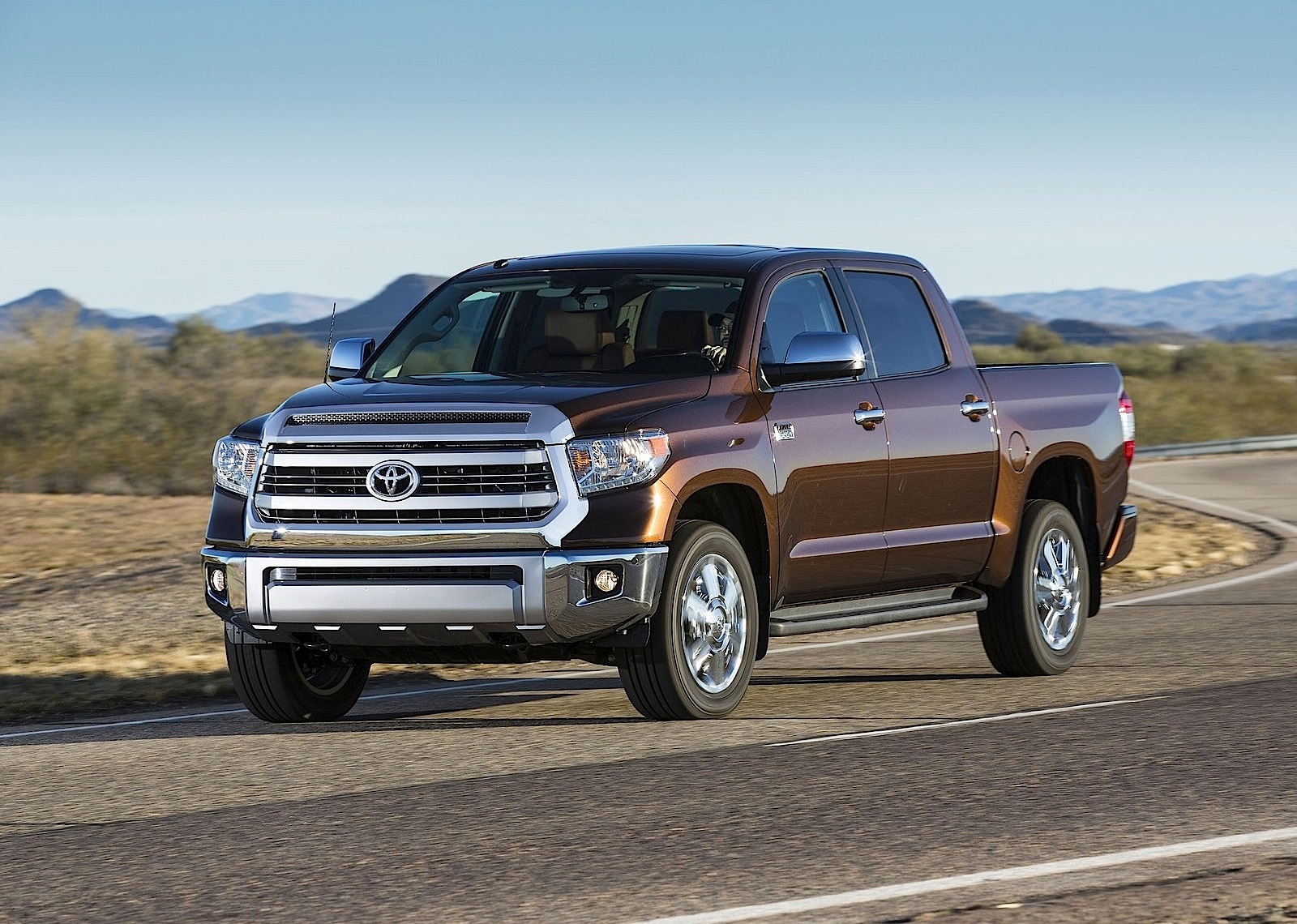
Toyota Tundra (2007–2013)
The Toyota Tundra has long been heralded for its reliability and robust performance, but there were notable weaknesses in the earlier models, particularly between 2007 and 2013, when it came to handling heavy loads.
Despite being marketed as a full-size, capable pickup truck, many of these Tundra models exhibited signs of frame stress when subjected to towing and hauling at their maximum capacity.
This issue was especially evident in the 4×4 versions of the truck, which had additional stress on the rear suspension and the frame.
When overloaded or when the truck was used for extreme towing tasks beyond the manufacturer’s recommended weight limits, the Tundra’s frame could sometimes develop cracks, particularly in the rear crossmembers and other high-stress areas.
The frame issues were often reported by owners who used the Tundra for heavy-duty work, such as construction, towing large trailers, or carrying extremely heavy payloads.
These trucks, although capable of handling standard duties, didn’t always maintain their structural integrity under the type of loads that are common in industries requiring constant towing or frequent hauling.
The rear suspension, although designed to handle some stress, was often found to be lacking when it came to distributing the weight properly or absorbing the shocks from extremely heavy payloads.
Over time, this resulted in bending, cracking, and, in some cases, complete failure of the frame. While Toyota took steps to address these issues in later models, the earlier years were susceptible to these vulnerabilities, making them less suitable for heavy-duty commercial or industrial use.
For many Tundra owners, the experience was disappointing, especially considering Toyota’s reputation for building durable and long-lasting vehicles. For individuals who needed a reliable workhorse for heavy-duty tasks, the Tundra of this generation simply couldn’t stand up to the job.
While it excelled as a daily driver and was more than capable of handling moderate hauling and towing duties, those who relied on their truck for constant heavy workloads found that the Tundra’s frame could only withstand so much before showing signs of significant wear.
For serious, long-term commercial use, owners would be better off opting for a truck with a frame specifically designed for extreme work, such as the Ford Super Duty or RAM Heavy Duty trucks.
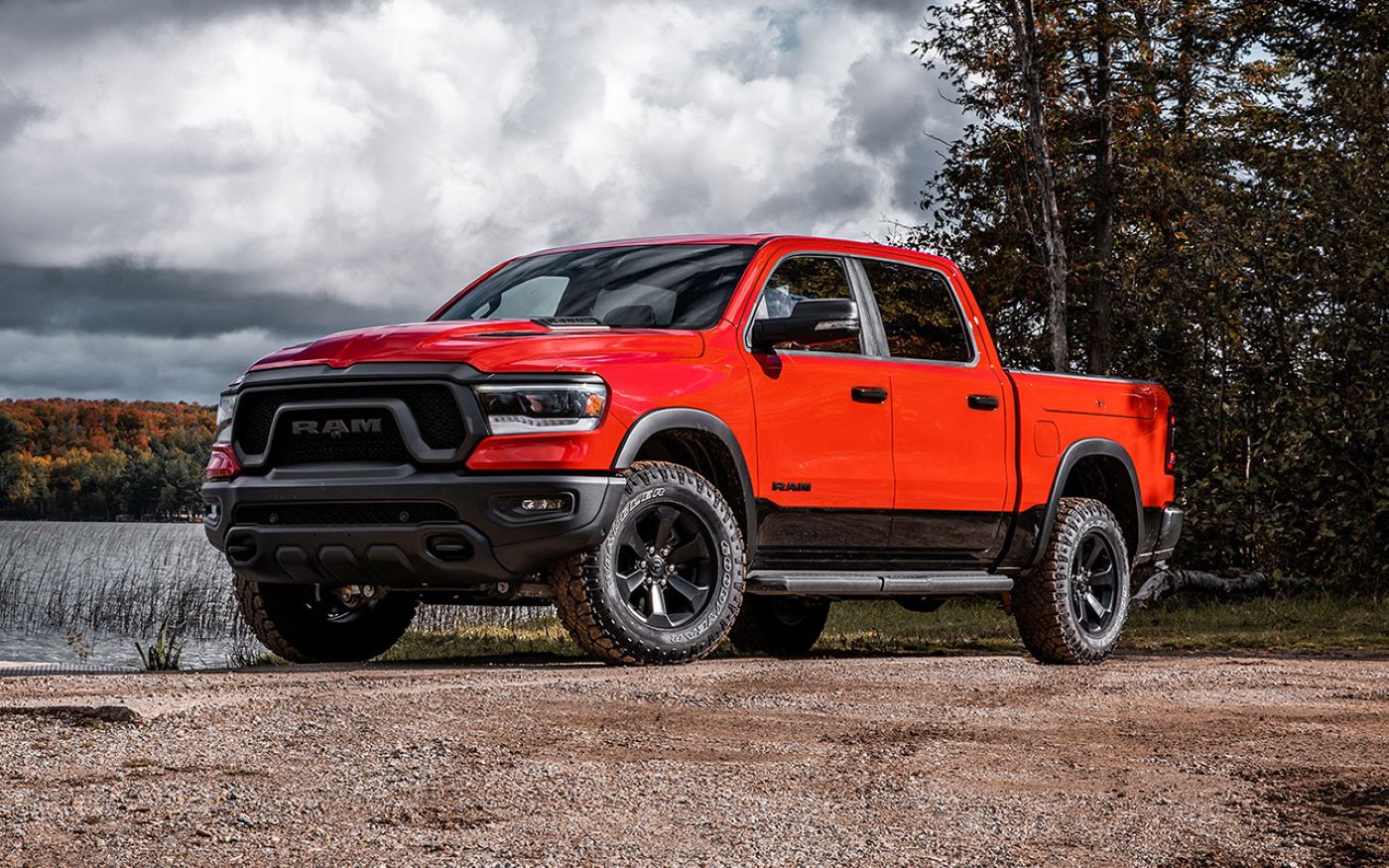
Ram 1500 (2013–2018)
The Ram 1500, especially in models produced from 2013 to 2018, has become a popular choice in the half-ton pickup market. While the truck is an excellent option for regular daily driving and light-to-medium-duty tasks, it unfortunately suffers from certain limitations when it comes to withstanding extreme loads.
Like many other trucks in its class, the Ram 1500 is designed for general-purpose use, but when pushed beyond its limits, whether through excessive towing or hauling heavy payloads, its frame has shown vulnerability.
In some cases, particularly with models that were used for demanding jobs like construction, the frame has been known to bend or crack when subjected to high-stress conditions over prolonged periods.
This issue is primarily related to the truck’s frame and its ability to handle the forces generated by heavy loads. While the Ram 1500 is built with a solid steel frame, its components are not as reinforced as those found in more robust, heavy-duty trucks.
The rear suspension, which is a critical element when hauling or towing, can also fail to properly support significant weight, leading to added strain on the frame.
Many owners reported issues when their Ram 1500s were used for work-related tasks, especially when towing large trailers or carrying heavy equipment in the bed. The problem became more apparent when these trucks were regularly exposed to conditions that placed continuous stress on the frame, causing long-term damage.
In some extreme cases, the frame could develop stress fractures or bends, which led to the truck’s inability to perform at the level needed for consistent heavy-duty work.
Though the Ram 1500 remains an excellent choice for those looking for a versatile truck for everyday use, it’s not the right option for anyone who plans to push the truck to its limits consistently.
For individuals who need a truck that can handle the demands of heavy-duty work, such as towing large commercial trailers or hauling construction materials regularly, the Ram 1500 may not provide the level of durability needed.
Instead, those in need of a more robust option should consider the Ram 2500 or 3500 models, which are specifically designed with reinforced frames and suspension systems to handle extreme workloads without compromising structural integrity.
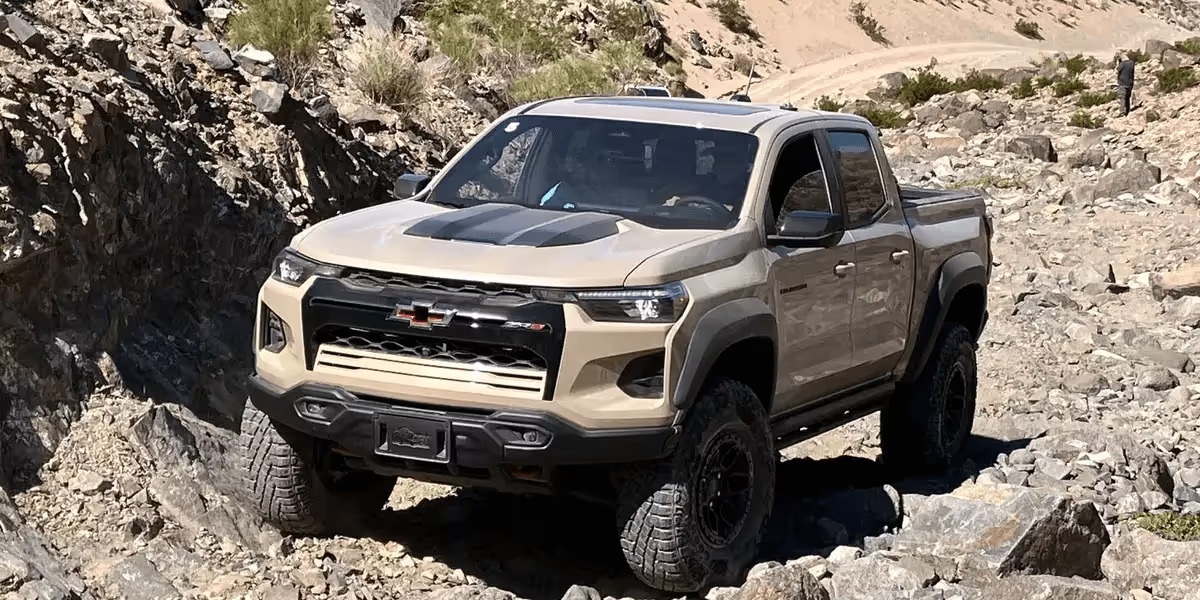
Chevrolet Colorado (2015–2020)
The Chevrolet Colorado, a mid-size pickup truck, is known for its versatility, fuel efficiency, and strong performance. However, when used for heavy-duty tasks, particularly in older models from 2015 to 2020, the Colorado can struggle to maintain its frame under intense loads.
While the Colorado is an excellent option for those who need a truck for everyday commuting or light-to-medium hauling, its frame isn’t built to handle the same kind of stress that full-size or heavy-duty trucks can manage.
When overloaded or used for tasks that require towing large trailers or carrying substantial payloads, the Colorado’s frame has been known to show signs of cracking and bending, especially in the rear sections.
The truck’s lighter construction and smaller frame, designed for improved fuel economy and maneuverability, make it less equipped to endure the harsh demands placed on full-size trucks in commercial or industrial settings.
Many Colorado owners who used their trucks for construction, landscaping, or other heavy-duty jobs reported issues with the truck’s ability to hold up under weight stress.
The rear axle and suspension system, while functional for moderate loads, sometimes proved insufficient when it came to consistently supporting larger, heavier loads, causing uneven weight distribution and eventual frame failure.
These vulnerabilities became evident when owners attempted to use the truck for demanding work, particularly when towing near or beyond the truck’s rated capacity.
While the Chevrolet Colorado remains an excellent choice for light to moderate use, buyers looking for a mid-size truck that can handle consistent heavy-duty work should be cautious. Its frame, though durable for everyday tasks, isn’t designed for the extreme stresses encountered in professions that require regular heavy towing or hauling.
Those with such needs would be better suited with a full-size pickup, such as the Silverado 2500HD or a larger truck from Ford or Ram, that can provide the necessary strength and durability.
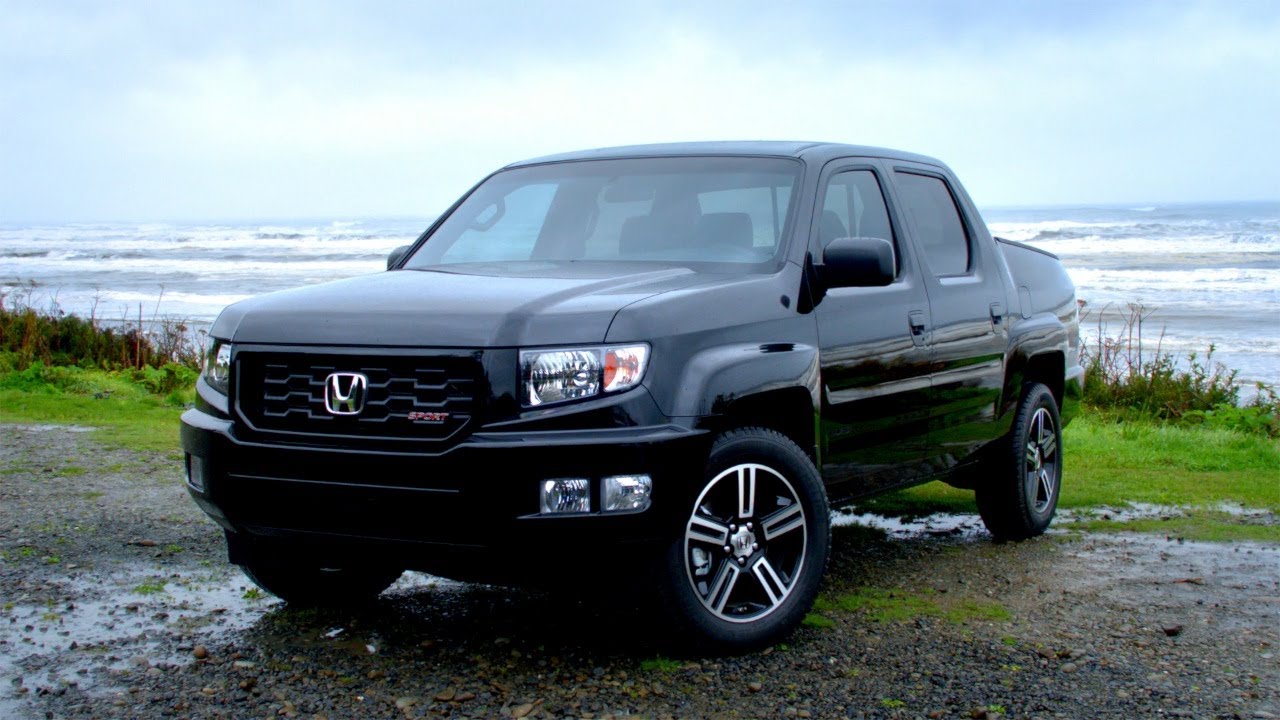
Honda Ridgeline (2005–2014)
The Honda Ridgeline, a unique entry in the pickup truck market, distinguishes itself with its unibody construction, which sets it apart from traditional body-on-frame trucks.
While the Ridgeline excels in providing a comfortable, car-like driving experience and offers excellent utility for light-to-medium-duty tasks, it simply wasn’t designed to handle heavy loads.
The unibody design, which provides a smoother ride and better fuel efficiency, comes with the trade-off of a less durable structure when compared to traditional frame-based pickup trucks.
In earlier models, particularly from 2005 to 2014, the Ridgeline was known to struggle with frame integrity when subjected to heavy payloads or extreme towing.
Although the Ridgeline’s unique construction allowed it to carry light loads and handle moderate towing with ease, its frame wasn’t built to withstand the stresses that come with consistent, heavy-duty work.
Overloading the truck or pushing it past its towing capacity often led to frame damage, particularly around the rear section where most of the stress from heavy payloads is concentrated.
For instance, cracks or bends were more likely to appear when the Ridgeline was used for demanding tasks such as hauling construction materials or towing large trailers. The lack of a traditional truck frame meant that the Ridgeline couldn’t distribute weight and handle impacts as effectively as trucks built with reinforced steel frames.
While the Ridgeline remains a great option for those seeking a comfortable, versatile pickup for light-duty tasks, it is not suited for individuals who regularly need to carry large loads or tow heavy trailers.
The unibody design, while innovative and beneficial in many ways, limits the Ridgeline’s ability to handle the type of work that other full-size or heavy-duty trucks excel at.
For those who need a truck that can handle regular, extreme stress without risking damage to the frame, traditional body-on-frame pickups like the Toyota Tacoma, Ford Ranger, or even full-size trucks from Chevrolet and Ram would be a more durable choice.
Also Read: 5 Cars With the Best Factory Warranties and 5 That Leave You Hanging
Choosing the right pickup truck is not just about looks, comfort, or fuel efficiency—it’s about durability and strength, especially if you rely on your truck for heavy-duty tasks.
Whether you’re hauling construction materials, towing a boat, or transporting a heavy payload, the integrity of the frame, suspension, and towing capacity of your truck plays a vital role in ensuring that it can withstand the demands you place on it.
In this context, understanding the differences between pickup trucks that excel under heavy loads and those that are prone to frame damage can save you time, money, and frustration in the long run.
The trucks listed in the “5 Pickup Trucks That Stay Solid Under Heavy Loads” section represent some of the most durable vehicles in the market, built specifically to handle the extreme stresses of commercial work, large loads, and regular towing.
These vehicles are designed with reinforced frames, heavy-duty suspension systems, and powerful engines to deliver consistent, reliable performance even under the harshest conditions.
Brands like Ford, Ram, and Chevrolet have long been trusted by professionals who need trucks that won’t back down from a challenge. These vehicles offer peace of mind, knowing that they are engineered to endure over time, offering the kind of toughness needed for demanding jobs.
On the other hand, the trucks highlighted in the “5 Pickup Trucks That Break Frames” section showcase how certain models, despite being well-regarded for general use, may not hold up as well when subjected to heavy workloads.
The issue often lies in a truck’s frame design and its ability to handle the extreme forces generated by constant towing or carrying oversized loads.
While these trucks may be fine for lighter tasks, their frames can crack or warp when pushed too far, leading to costly repairs and potential safety concerns.
Whether it’s due to design limitations like a lighter unibody frame, weak suspension components, or simply not being built for continuous heavy-duty use, these trucks may not be the best choice for anyone whose work relies on consistent heavy-duty hauling and towing.
The key takeaway is that one size does not fit all when it comes to pickup trucks. If you primarily need a vehicle for personal use or lighter tasks, many of the trucks that break frames may still serve you well.
However, if you depend on your truck for regular heavy-duty work, it’s essential to choose a model that’s specifically built for those challenges.
The trucks that excel under heavy loads are designed with strength and endurance in mind, ensuring they can perform reliably and safely over the long haul.
In contrast, the trucks that struggle with heavy loads are often better suited for light-duty applications, where their frame and suspension systems can handle the work they’re asked to do without risk of failure.
Before purchasing a pickup truck, take time to evaluate the types of tasks you expect to use it for and how much weight it will regularly carry or tow. Consider factors like payload capacity, towing capability, and the durability of the frame and suspension.
If your work or lifestyle requires you to haul heavy items frequently, invest in a truck designed to take on that level of responsibility without compromising performance. On the other hand, if your needs are more occasional or light-duty, you can comfortably go for a model that is versatile and offers great value without breaking the bank.

